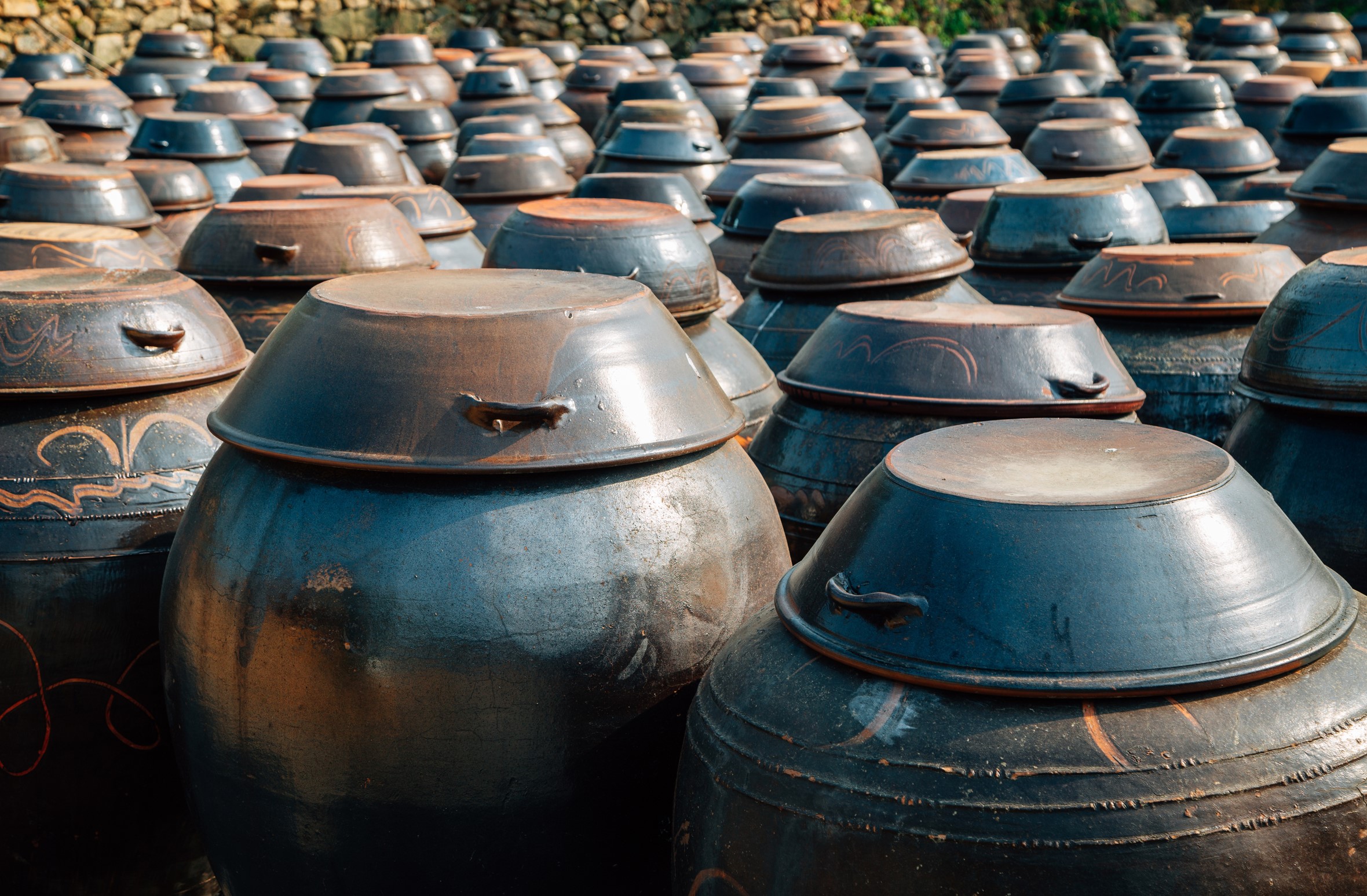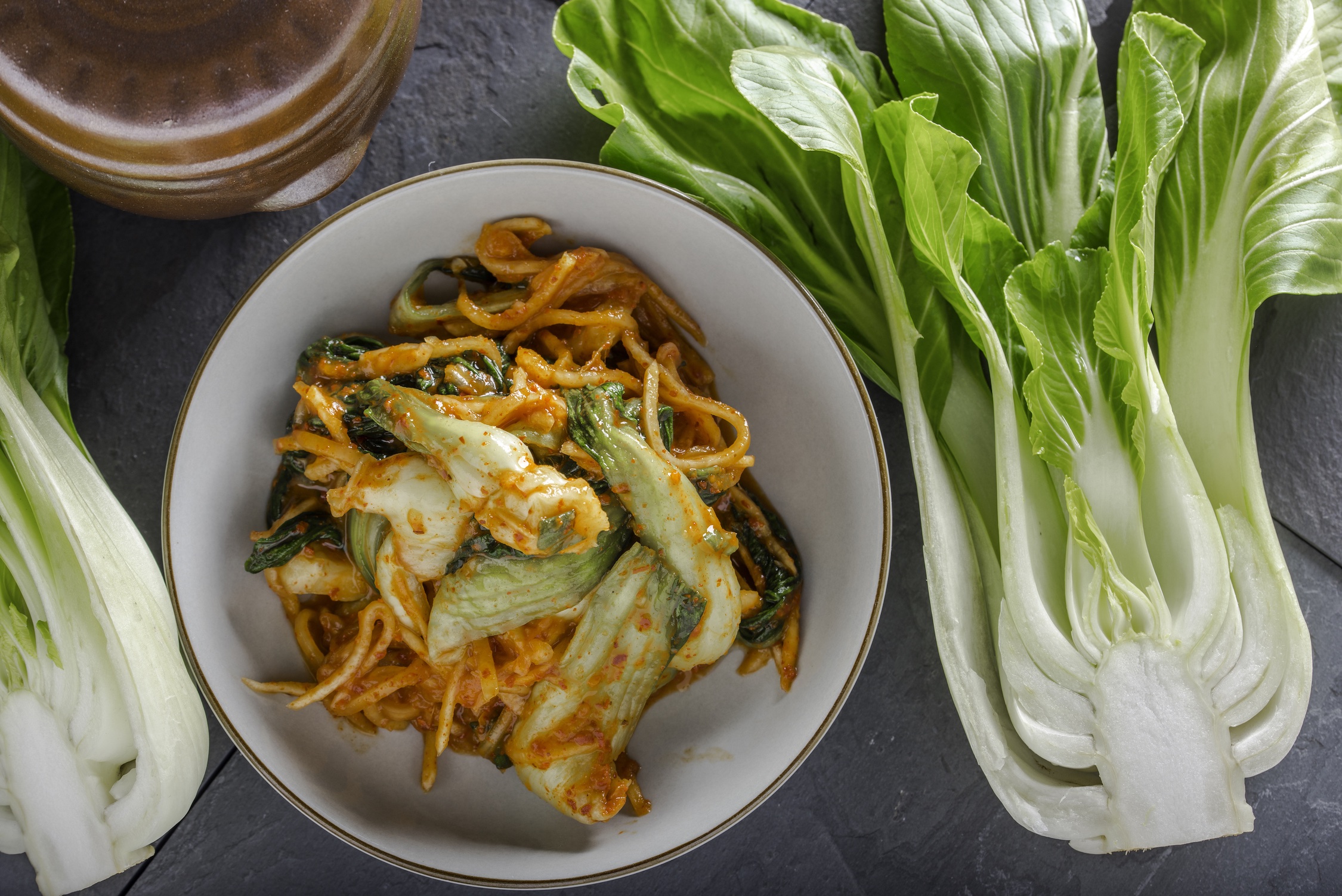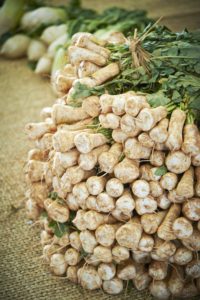How to Make Kimchi
Rows of heavy earthenware pots can often be found in a traditional Korean household. These airtight vessels, often called “onggi” in Korean, translate to “breathing pot” — named for their ability to store fresh food and allow it to ferment naturally. Here, we’re discussing it in the context of making kimchi.
Fermentation has been used as a traditional cooking process in Korean culture from as early as 1500 B.C., where records show ancient Korean civilizations fermented vegetables to preserve food through the seasons.
This ancient method has been passed on through succeeding generations and continues to be used in Korean cooking today.
When it comes to traditional cabbage kimchi, fresh Napa cabbage leaves are brined in salt water for about 24 hours. The cabbage is then hand-mixed with gochujang, garlic, ginger, fish sauce, shrimp paste, and sesame seeds to create a funky, deeply flavorful brine. The mixture is then placed in an airtight container like earthenware and left to ferment for days or weeks.
During this time, the fresh Napa cabbage is transformed into a crunchy, spicy-tart flavor explosion. The longer the kimchi is fermented, the stronger the flavor. Most kimchi is consumed after 6 months to 2 years of fermenting.
Kimchi is the perfect acidity to help offset the richness found in other Korean dishes. In addition to the complexity in flavor that the fermentation provides, there’s also a strong health angle to this cooking technique. Preserving foods lowers unhealthy cholesterol levels, prevents diseases, and also promotes the growth of good digestive bacteria in the body.
What was once a preservation technique created for survival has grown to be a deeply flavorful cooking technique that’s changed how the world thinks about fermentation and health.
Find Local Korean Shefs & Meals
If you’re a lover of authentic Koren kimchi, order some home-cooked Korean food from our local community of chefs — every cook is food safety certified and earns a meaningful income selling their homemade dishes.
- Los Angeles
- San Francisco (Bay Area)
- Chicago
- New York City
- New Jersey
- Seattle
Find your local home-cooked food today!









